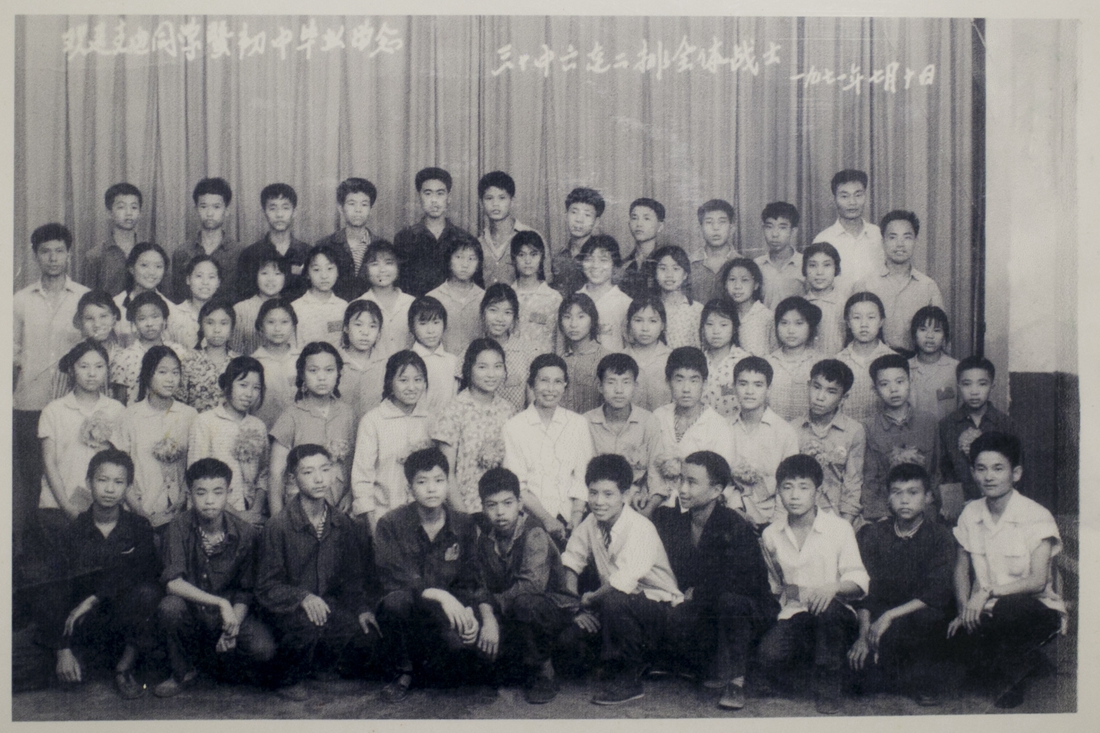
Stories of China’s educated youth who stayed down in the Yunnan countryside
By Globaltimes.cn- photo.sina.com.cn, Published: 2016-10-30 17:05:51
A middle school graduation photo taken in 1971.
Beginning in the 1950s, the Down to the Countryside Movement swept China. During this period, youth from urban areas, most of whom holding only middle and high school educations, went to live and work in remote villages and borderlands. As the movement dwindled in the late 1970s, many educated youth fled back to their hometowns, while tens of thousands chose to stay behind, according to 2008 statistics from Nanjing-based Modern Express. Photos: Wang Dansui/photo.sina.com.cn
[GalleryHights]
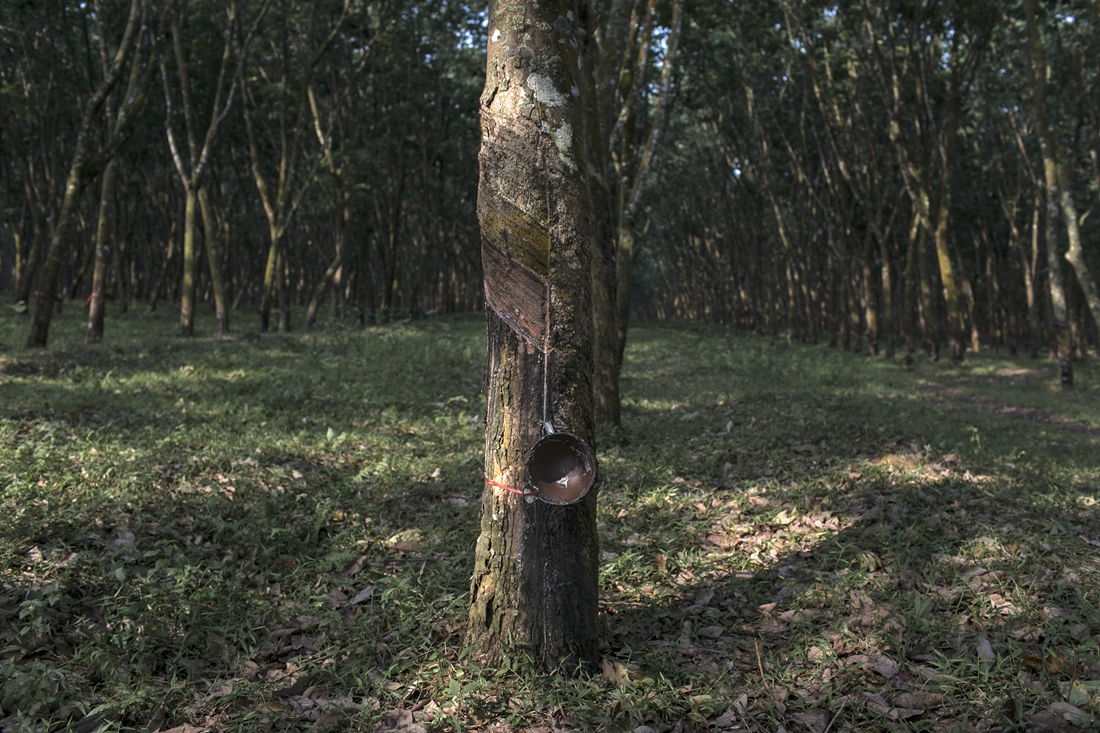 Latex flows out of a rubber tree.
At the end of the 1950s, China sent a large number of youth to plant rubber trees in the virgin forests of Southwest China’s Yunnan Province, in a bid to break the Western rubber blockade on China. This ultimately lead to the foundation of the Yunnan Production and Construction Corps. Millions of educated youths participated in the rubber planting campaign, where they battled with hunger, disease, insects and even wild animals.
Latex flows out of a rubber tree.
At the end of the 1950s, China sent a large number of youth to plant rubber trees in the virgin forests of Southwest China’s Yunnan Province, in a bid to break the Western rubber blockade on China. This ultimately lead to the foundation of the Yunnan Production and Construction Corps. Millions of educated youths participated in the rubber planting campaign, where they battled with hunger, disease, insects and even wild animals.
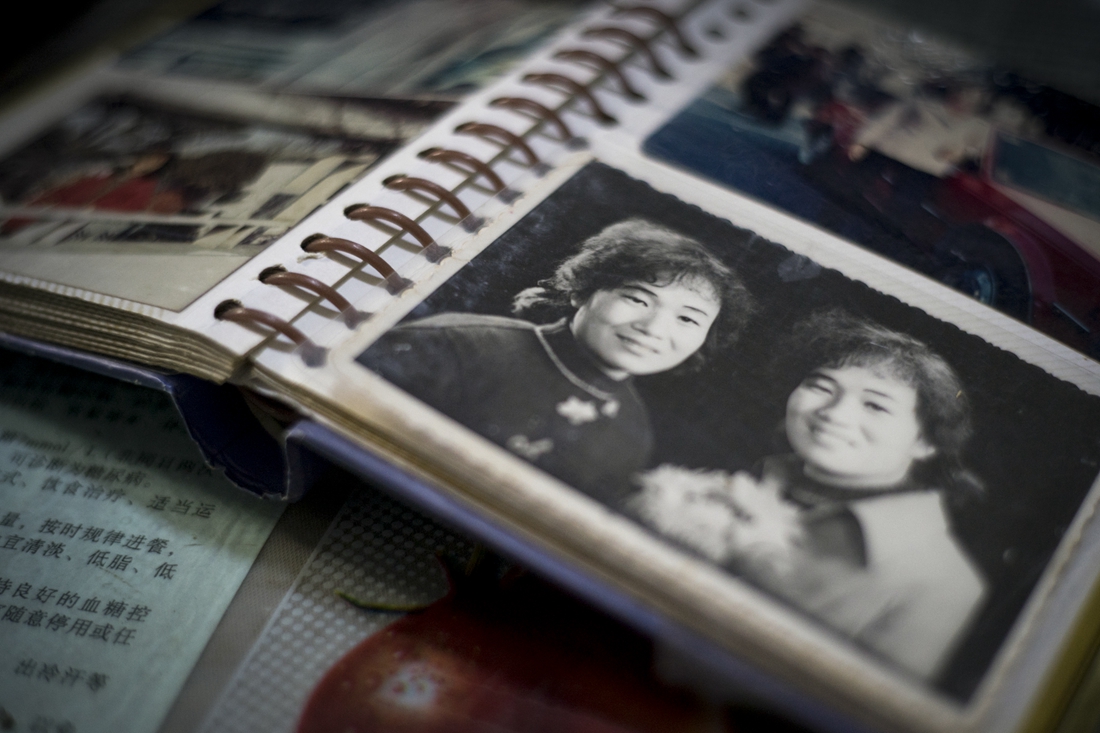 Shi Yongqing (left) took this photo in 1982. She now lives in Jinghong city, Xishuangbanna Dai Autonomous Prefecture, Yunnan Province. In 1970, 18-year-old Shi left Shanghai for Yunnan to take part in the agricultural reclamation movement. She never imagined however that she would remain in Yunnan for the rest of her life.
Shi Yongqing (left) took this photo in 1982. She now lives in Jinghong city, Xishuangbanna Dai Autonomous Prefecture, Yunnan Province. In 1970, 18-year-old Shi left Shanghai for Yunnan to take part in the agricultural reclamation movement. She never imagined however that she would remain in Yunnan for the rest of her life. 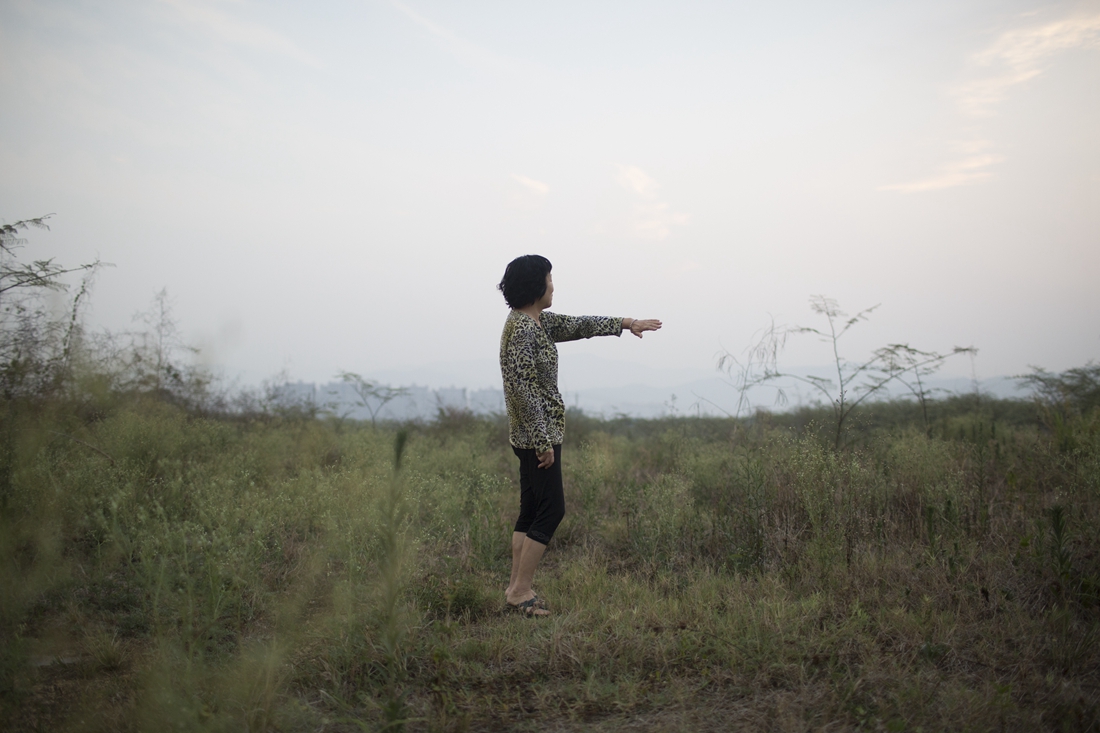 Early one morning in May, 2016, Shi Yongqing went out for her usual walk. Passing by a piece of land which had been purchased by a real estate agent, Shi said that it was a paddy field she had once personally cultivated. Although the Down to the Countryside Movement came to an end after the educated youth working in Yunnan went to Beijing to petition the government at the end of 1978, Shi chose to stay in Yunnan as her husband was unable to obtain a Shanghai hukou (household registration) due to the policies at the time.
Early one morning in May, 2016, Shi Yongqing went out for her usual walk. Passing by a piece of land which had been purchased by a real estate agent, Shi said that it was a paddy field she had once personally cultivated. Although the Down to the Countryside Movement came to an end after the educated youth working in Yunnan went to Beijing to petition the government at the end of 1978, Shi chose to stay in Yunnan as her husband was unable to obtain a Shanghai hukou (household registration) due to the policies at the time. 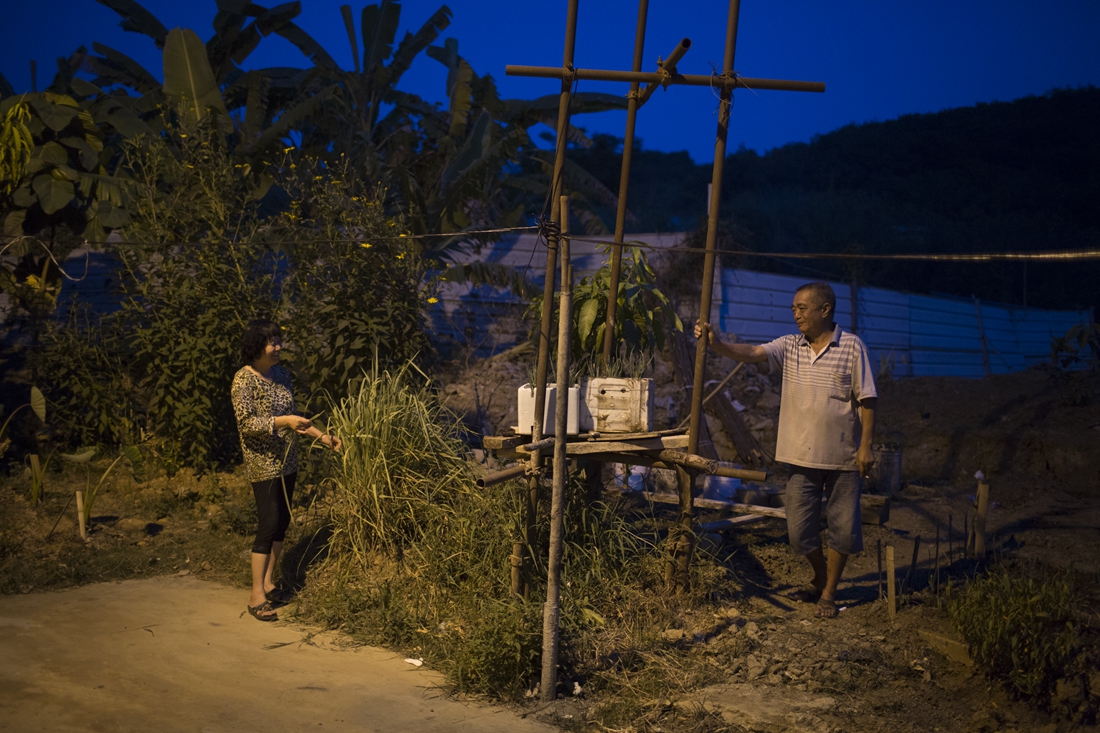 Shi Yongqing and her husband stand in their vegetable garden at nightfall. Before coming to Yunnan, Shi had thought the greatest hardship was to go without meat for a whole week, never imagining her feet would fester due to the miasma in Yunnan’s virgin forests. In 1973, with no hope of going back to her hometown, Shi married her doctor. She said that since getting married there is no greater happiness than returning home after work to a nice pot of hot water.
Shi Yongqing and her husband stand in their vegetable garden at nightfall. Before coming to Yunnan, Shi had thought the greatest hardship was to go without meat for a whole week, never imagining her feet would fester due to the miasma in Yunnan’s virgin forests. In 1973, with no hope of going back to her hometown, Shi married her doctor. She said that since getting married there is no greater happiness than returning home after work to a nice pot of hot water. 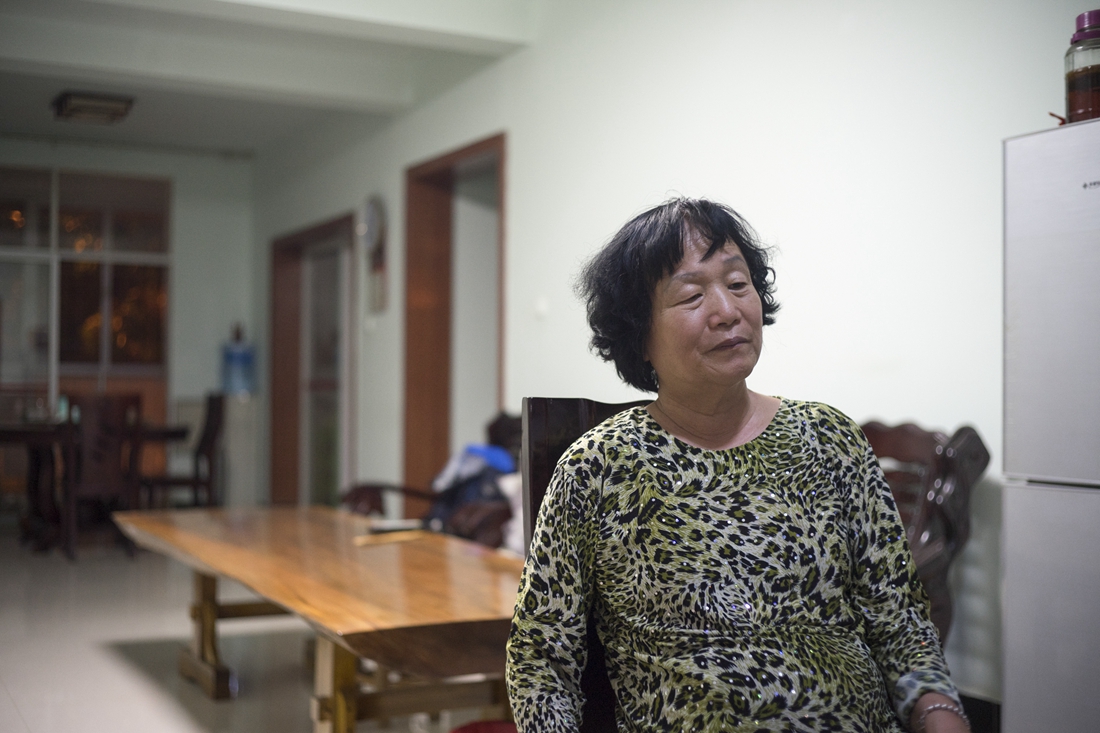 Shi Yongqing has been a teacher, raised chickens and ducks, and sold breakfast foods. Though Shi had a heart bypass surgery in 2014 and is of poor health, she still enjoys her retired life and insists on regular physical exercise. She said life is much better than in the old days, although her pension is only 2,200 yuan ($328.24) a month.
Shi Yongqing has been a teacher, raised chickens and ducks, and sold breakfast foods. Though Shi had a heart bypass surgery in 2014 and is of poor health, she still enjoys her retired life and insists on regular physical exercise. She said life is much better than in the old days, although her pension is only 2,200 yuan ($328.24) a month. 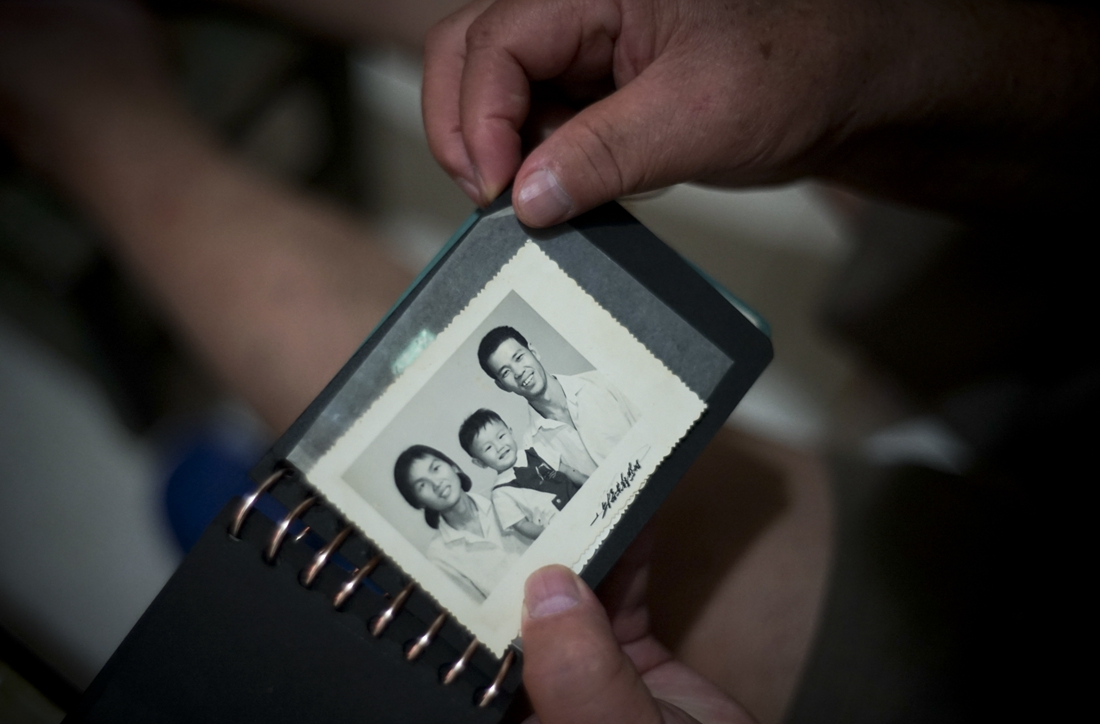 A family photo of Yan Wenzhong (right) taken in the early 1980s.
In 1968, 19-year-old Yan from Shanghai's Pudong district decided to participate in the Down to the Countryside Movement. Hoping to win the heart of a woman he adored, he came to the Ganlanba Farm in Xishuangbanna, however he failed to win her over. In 1977, he married a woman from Shandong Province.
A family photo of Yan Wenzhong (right) taken in the early 1980s.
In 1968, 19-year-old Yan from Shanghai's Pudong district decided to participate in the Down to the Countryside Movement. Hoping to win the heart of a woman he adored, he came to the Ganlanba Farm in Xishuangbanna, however he failed to win her over. In 1977, he married a woman from Shandong Province.
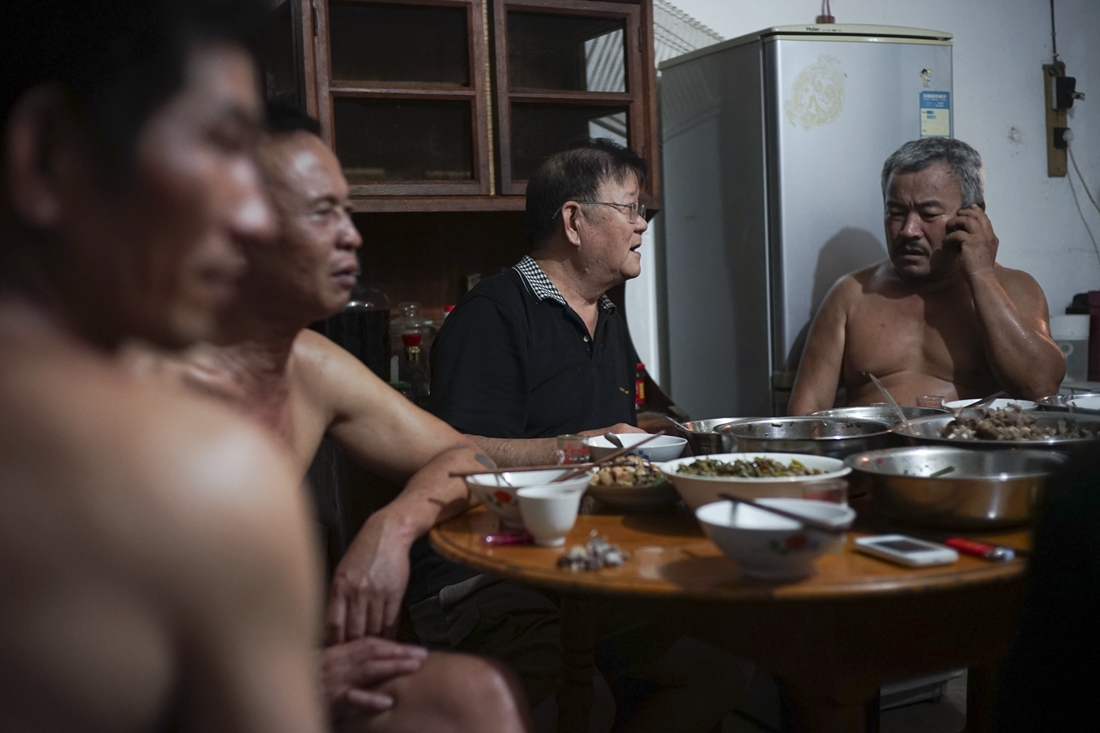 Yan (2nd from right) dines with friends. Yan had to stay at the farm as his wife was unable to secure a city hukou (household registration) if they return to Shanghai. Now retired, 69-year-old Yan lives in the second division of Ganlanba Farm in Yunnan Province. He still speaks Putonghua with a Shanghai accent, though he has no trouble understanding local dialects.
Yan (2nd from right) dines with friends. Yan had to stay at the farm as his wife was unable to secure a city hukou (household registration) if they return to Shanghai. Now retired, 69-year-old Yan lives in the second division of Ganlanba Farm in Yunnan Province. He still speaks Putonghua with a Shanghai accent, though he has no trouble understanding local dialects. 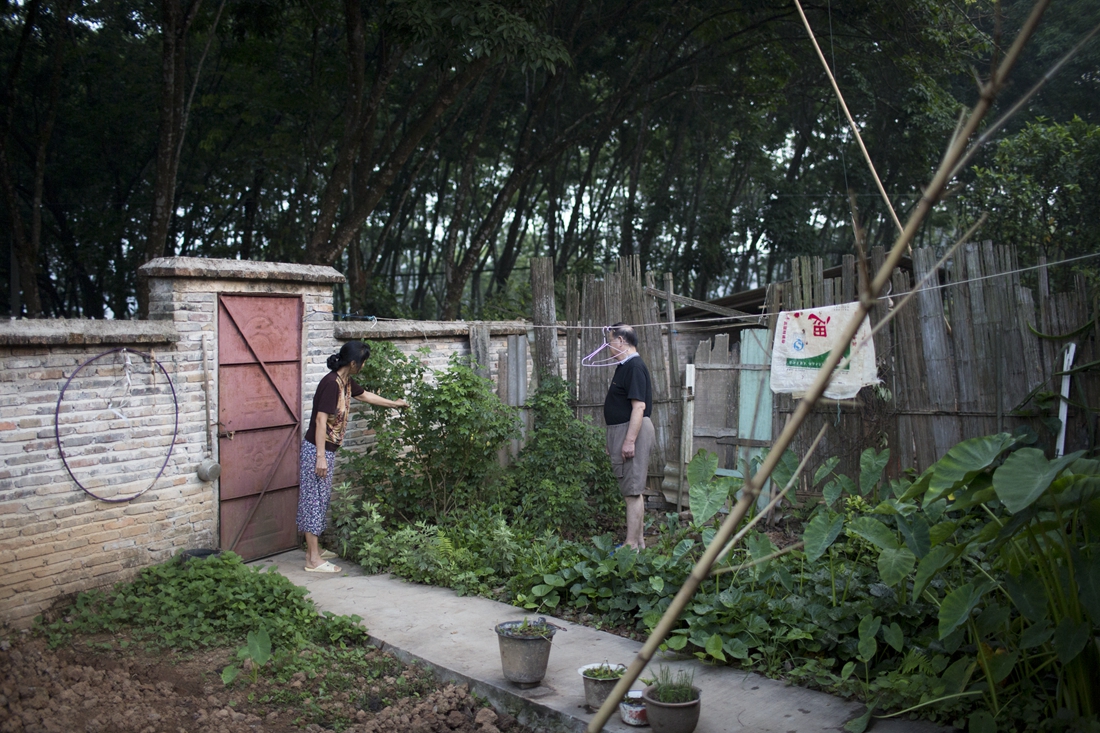 In the 1980s, the Shanghai government put forward a policy that allowed one child under the age of 25 of each educated youth to obtain a Shanghai hukou. In 2005, Yan spent all his savings buying a 30-square-meter house in Shanghai for his son. Yan and his wife had to return to Yunnan after their son got married as the house was too small to accommodate so many people.
In the 1980s, the Shanghai government put forward a policy that allowed one child under the age of 25 of each educated youth to obtain a Shanghai hukou. In 2005, Yan spent all his savings buying a 30-square-meter house in Shanghai for his son. Yan and his wife had to return to Yunnan after their son got married as the house was too small to accommodate so many people. 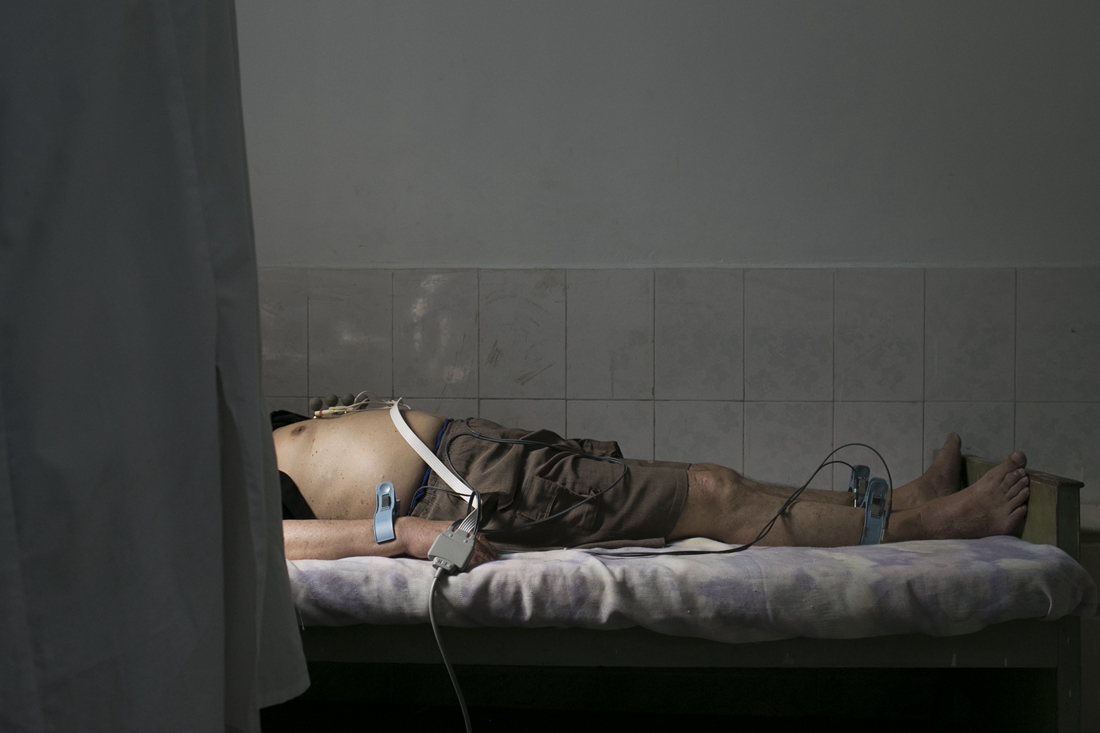 Yan now suffers from backache if he stands for too long, as he hurt himself carrying a 50 kilogram load of firewood in 1971, and also suffers from high blood pressure, gout and other ailments. Yan recalled that many educated youths had trouble adapting to the humid local climate, and the poor medical care provided at that time meant allergies, hepatitis and other complications were common.
Yan now suffers from backache if he stands for too long, as he hurt himself carrying a 50 kilogram load of firewood in 1971, and also suffers from high blood pressure, gout and other ailments. Yan recalled that many educated youths had trouble adapting to the humid local climate, and the poor medical care provided at that time meant allergies, hepatitis and other complications were common.  Now Yan’s hukou has been transferred back to Shanghai. In the future, he hopes his son can purchase a larger house, allowing his family to be reunited in the city.
Now Yan’s hukou has been transferred back to Shanghai. In the future, he hopes his son can purchase a larger house, allowing his family to be reunited in the city. 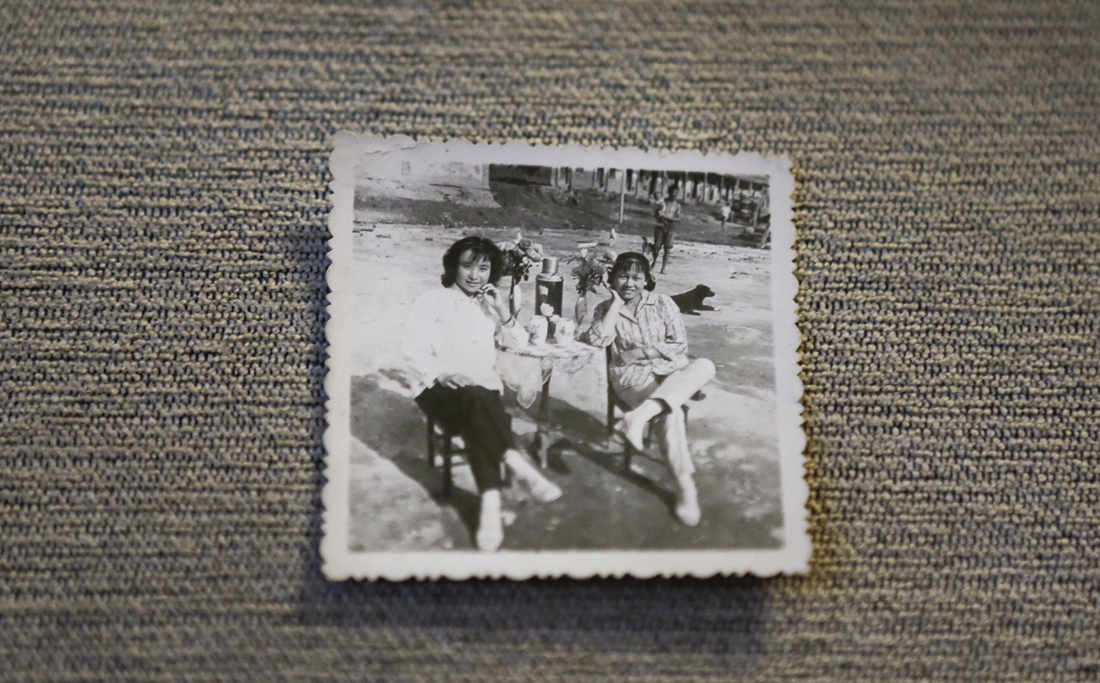 Deng Chengfen (left) from Chongqing, wearing fashionable clothing bought in the city, poses for a photo in front of a hut in the farm she worked in. The photo was taken on the day she came back from her hometown. The educated youth had to save for more than a half a year to pay for a train ticket back home, as they only earned about 28 yuan ($4.13) a month at the time.
Deng Chengfen (left) from Chongqing, wearing fashionable clothing bought in the city, poses for a photo in front of a hut in the farm she worked in. The photo was taken on the day she came back from her hometown. The educated youth had to save for more than a half a year to pay for a train ticket back home, as they only earned about 28 yuan ($4.13) a month at the time. 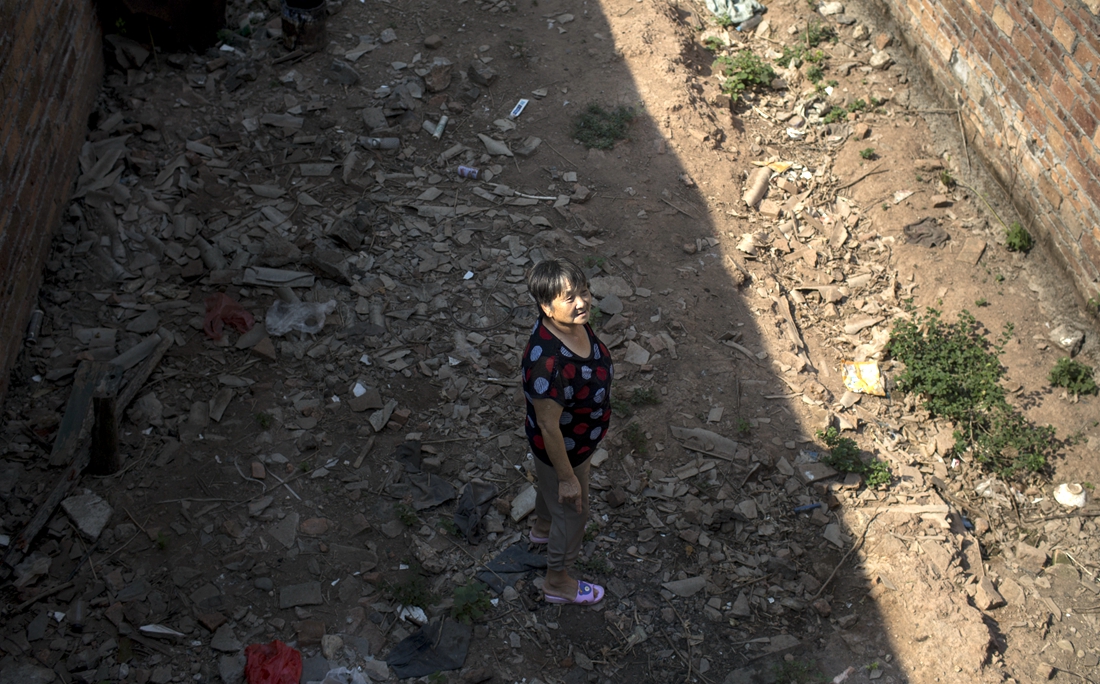 Deng Chengfen, now 70, still remembers December 31, 1965, the day she left home against her mother’s will and headed for Yunnan. Every single day after arriving in Xishuangbanna, Deng desperately wished to return home. However, when the day finally came, she had no choice but to stay because she had married a local man from Yunnan.
Deng Chengfen, now 70, still remembers December 31, 1965, the day she left home against her mother’s will and headed for Yunnan. Every single day after arriving in Xishuangbanna, Deng desperately wished to return home. However, when the day finally came, she had no choice but to stay because she had married a local man from Yunnan. 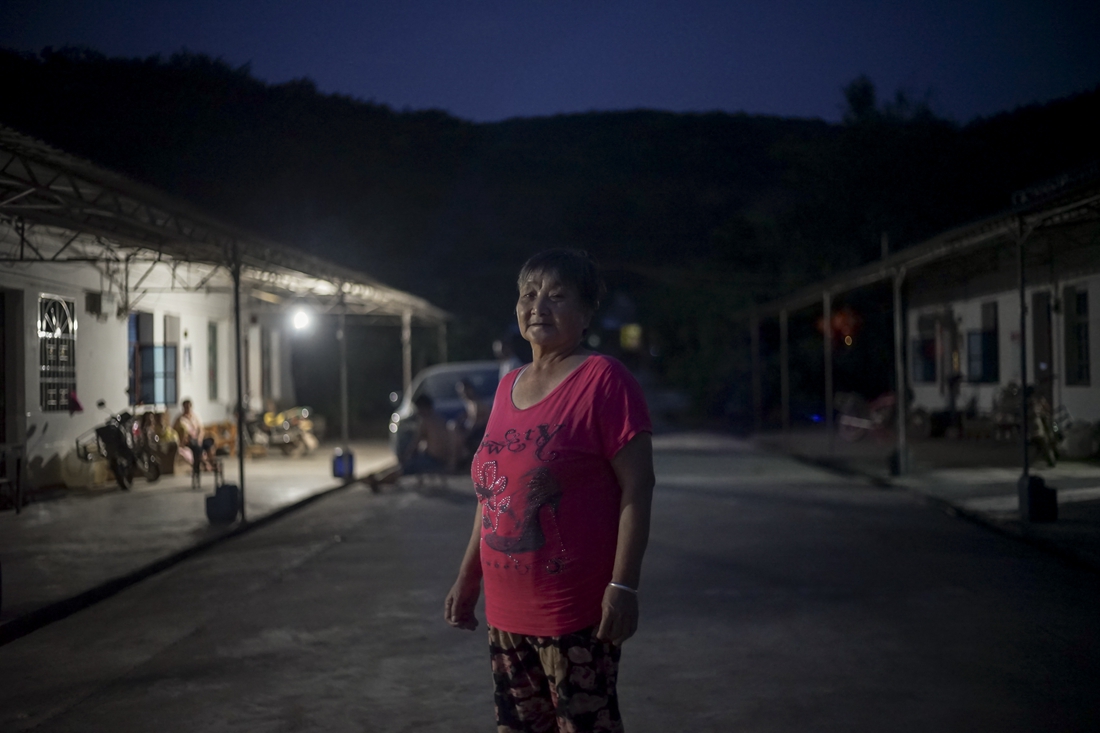 Deng now lives in a house provided by the farm. In promotional materials at the time, Xishuangbanna was described as a place overflowing with bananas, pineapples and peanuts. However, when she first arrived in her new home, she found only virgin forests and huts, containing nothing but a rubber tapping knife, a mosquito net and a pair of canvas military shoes.
Deng now lives in a house provided by the farm. In promotional materials at the time, Xishuangbanna was described as a place overflowing with bananas, pineapples and peanuts. However, when she first arrived in her new home, she found only virgin forests and huts, containing nothing but a rubber tapping knife, a mosquito net and a pair of canvas military shoes. 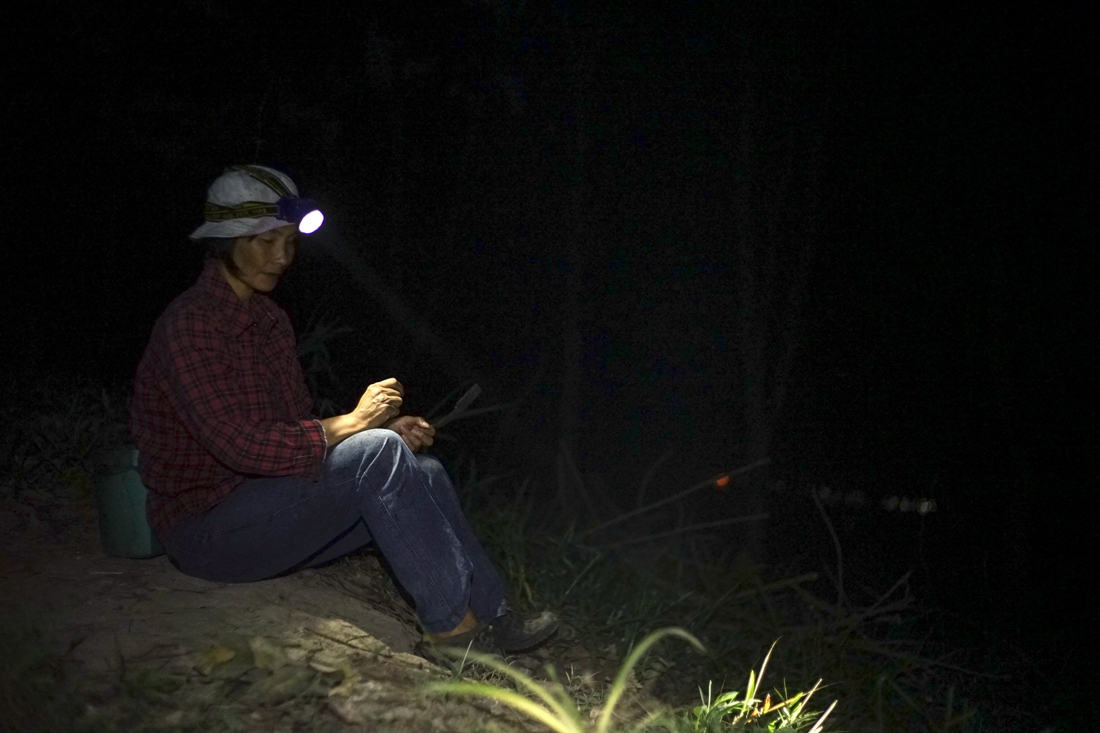 Deng’s children make a living by tapping rubber trees on the farm, following in their parents’ footsteps. Deng’s daughter heads into the mountains at 3 or 4 am every morning, as rubber tree tapping can only be done at night. She said that she once went to Chongqing with her mother, but she wasn’t made out for city life.
Deng’s children make a living by tapping rubber trees on the farm, following in their parents’ footsteps. Deng’s daughter heads into the mountains at 3 or 4 am every morning, as rubber tree tapping can only be done at night. She said that she once went to Chongqing with her mother, but she wasn’t made out for city life. 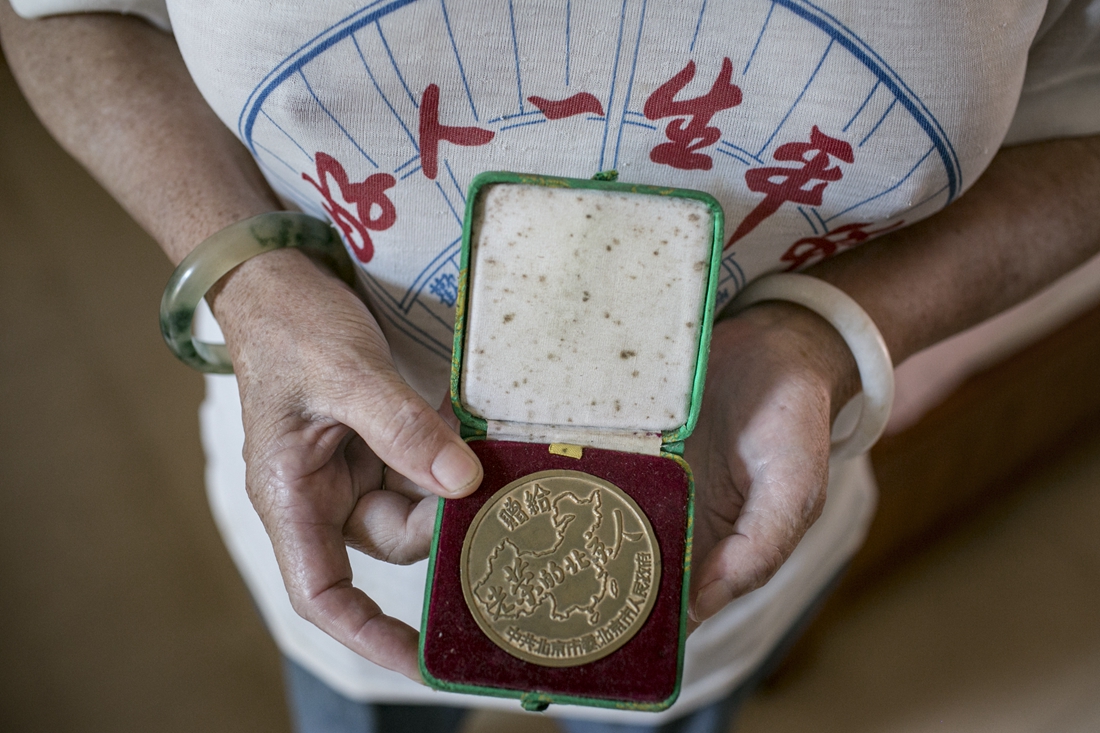 Zhou Yueqin, 63, is an educated youth from Shanghai. Since her husband has passed away and her son works in Beijing, she lives alone in a state-owned nursing home in Xishuangbanna belonging to Dongfeng Farm. When she moved there, she brought with her a medal awarded to her husband, an educated youth from Beijing. It reads: “To an honorable Beijinger”.
Zhou Yueqin, 63, is an educated youth from Shanghai. Since her husband has passed away and her son works in Beijing, she lives alone in a state-owned nursing home in Xishuangbanna belonging to Dongfeng Farm. When she moved there, she brought with her a medal awarded to her husband, an educated youth from Beijing. It reads: “To an honorable Beijinger”. 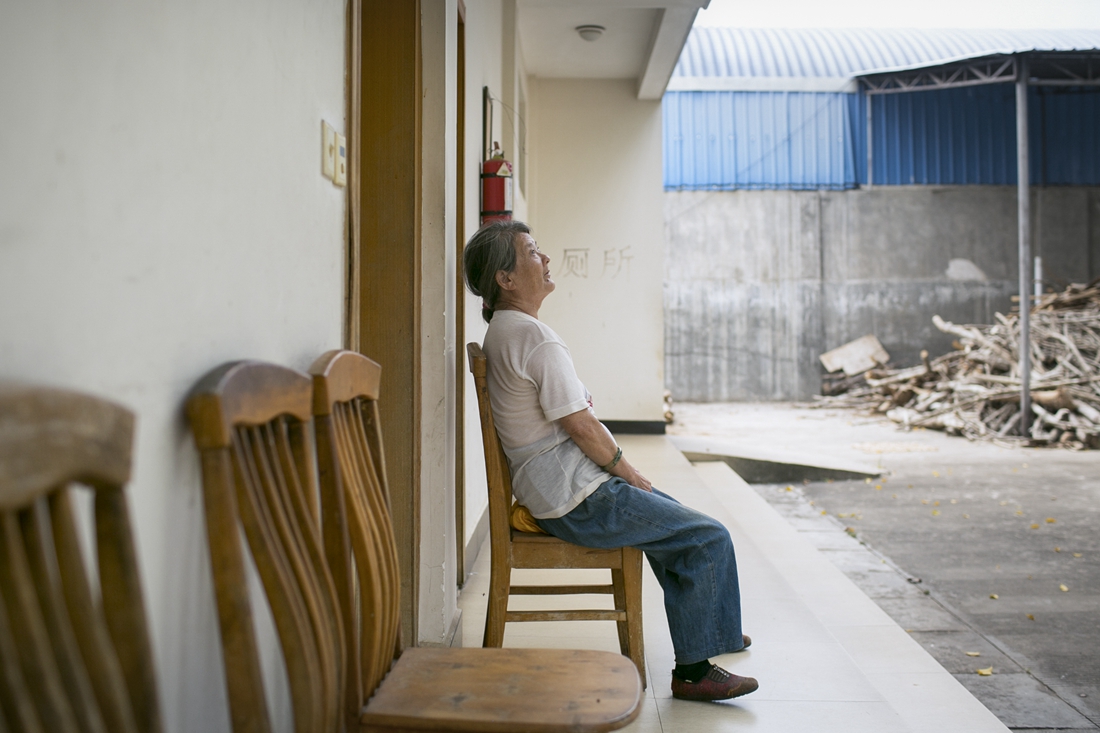 Zhou enjoys a moment of relaxation on her porch. Since her parents passed away at a young age, she came to work at Liming Farm in Menghai county, Yunnan Province at the age of 16.
Zhou enjoys a moment of relaxation on her porch. Since her parents passed away at a young age, she came to work at Liming Farm in Menghai county, Yunnan Province at the age of 16. 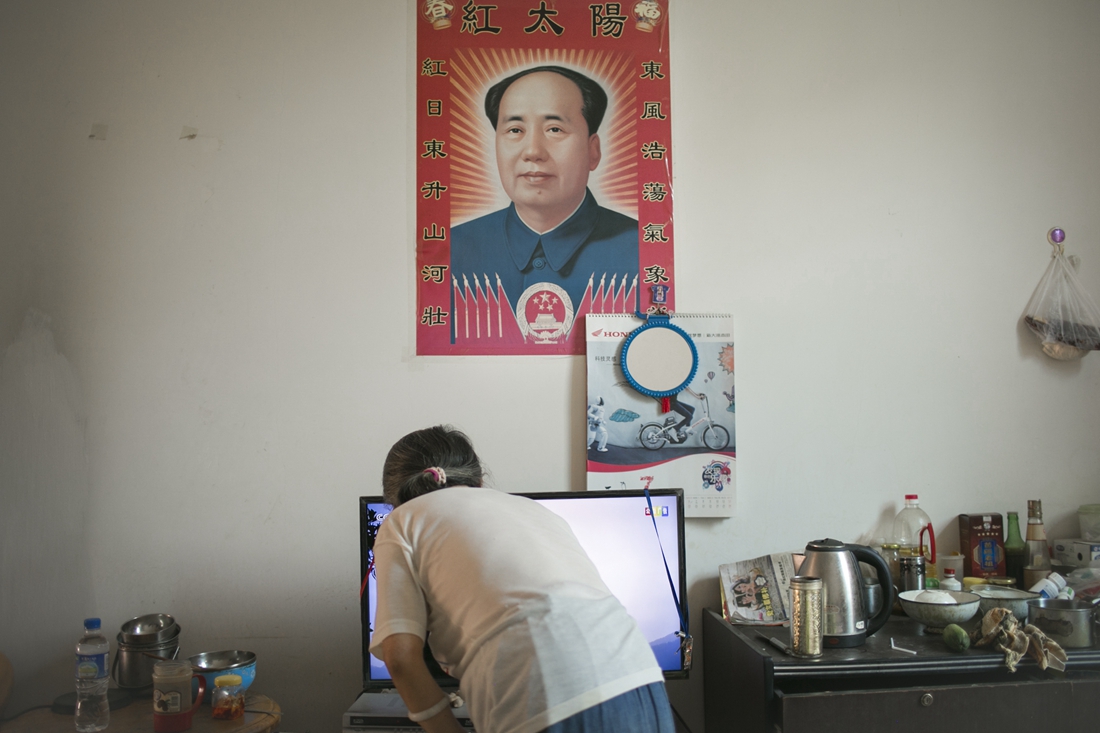 In Zhou’s room there still hangs a picture of Chairman Mao. She has to get within inches of her TV screen when changing channels, as her left eye is almost blind. She has also lost almost all of her teeth, and suffers from diabetes. She needs to pay the nursing home 800 yuan ($118.06) a month out of her 1700 yuan pension, with the rest going towards her medicine and dentures. She doesn’t want to be a burden on her son, so she seldom asks him for money.
In Zhou’s room there still hangs a picture of Chairman Mao. She has to get within inches of her TV screen when changing channels, as her left eye is almost blind. She has also lost almost all of her teeth, and suffers from diabetes. She needs to pay the nursing home 800 yuan ($118.06) a month out of her 1700 yuan pension, with the rest going towards her medicine and dentures. She doesn’t want to be a burden on her son, so she seldom asks him for money. 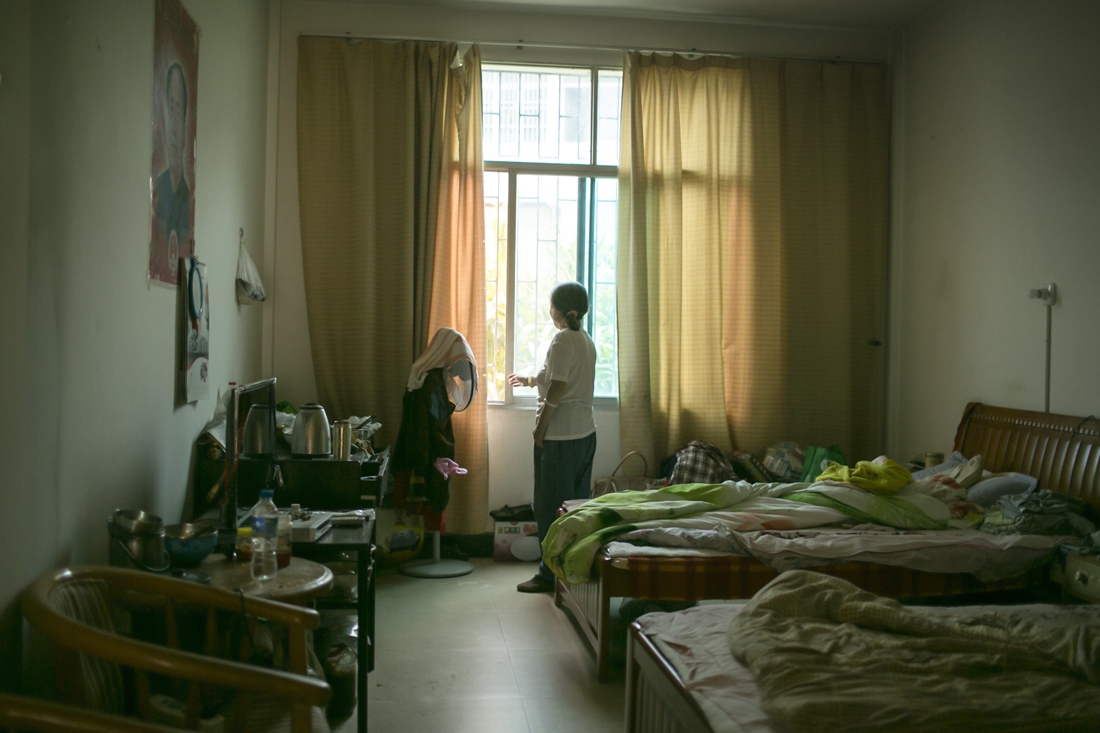 In 1992, Zhou and her husband decided to send their 11-year-old son back to Beijing to live with his grandfather, hoping to earn a city hukou after the Beijing government introduced a related policy.
Today her son works at a steel plant in Tangshan, and can only return home to Beijing once a week at most. Zhou meanwhile had to stay in Yunnan, as her medical insurance cannot be transferred to Beijing, and she is of poor health. Zhou, her son and grandson now live in three different places. She said that to this day she has never met her 9-year-old grandson.
In 1992, Zhou and her husband decided to send their 11-year-old son back to Beijing to live with his grandfather, hoping to earn a city hukou after the Beijing government introduced a related policy.
Today her son works at a steel plant in Tangshan, and can only return home to Beijing once a week at most. Zhou meanwhile had to stay in Yunnan, as her medical insurance cannot be transferred to Beijing, and she is of poor health. Zhou, her son and grandson now live in three different places. She said that to this day she has never met her 9-year-old grandson.
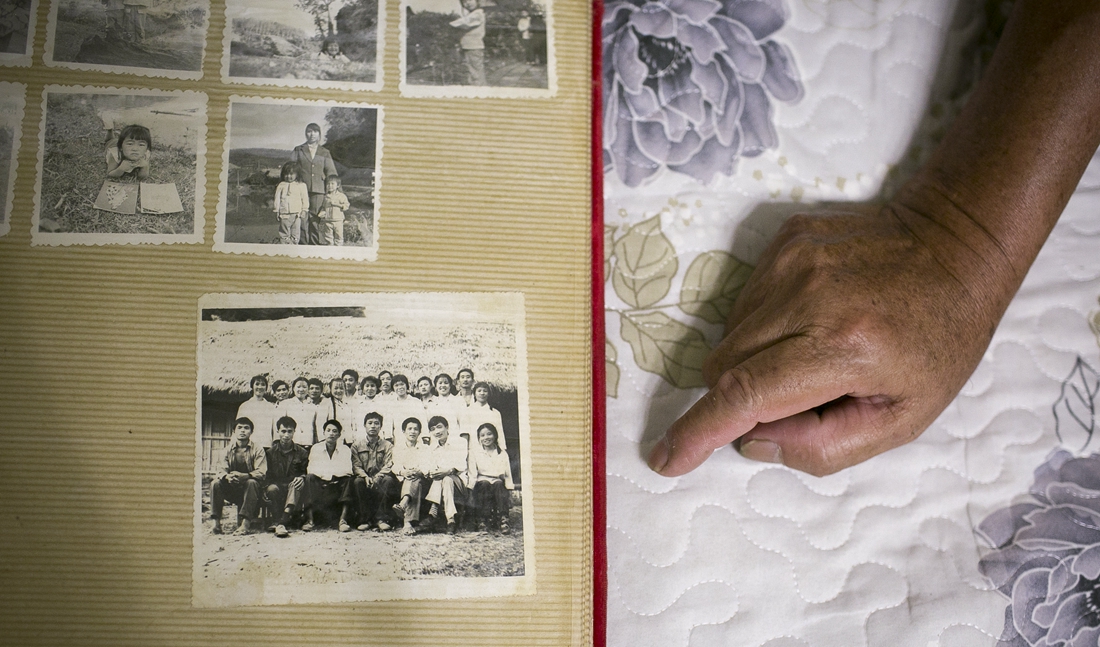 In 1979, Bai Hongfu, an educated youth from Chongqing, took this photo with youths from rural areas. At the end of 1978, 98% of the total 10,813 educated youths on Dongfeng Farm returned to the city. Due to the sharp reduction in the labor force, Dongfeng Farm began to mobilize volunteer youths from inland rural areas. Though Bai once returned to Chongqing at the end of the 1970s, he chose to head back to Yunnan after being unsatisfied with the job he was assigned.
In 1979, Bai Hongfu, an educated youth from Chongqing, took this photo with youths from rural areas. At the end of 1978, 98% of the total 10,813 educated youths on Dongfeng Farm returned to the city. Due to the sharp reduction in the labor force, Dongfeng Farm began to mobilize volunteer youths from inland rural areas. Though Bai once returned to Chongqing at the end of the 1970s, he chose to head back to Yunnan after being unsatisfied with the job he was assigned. 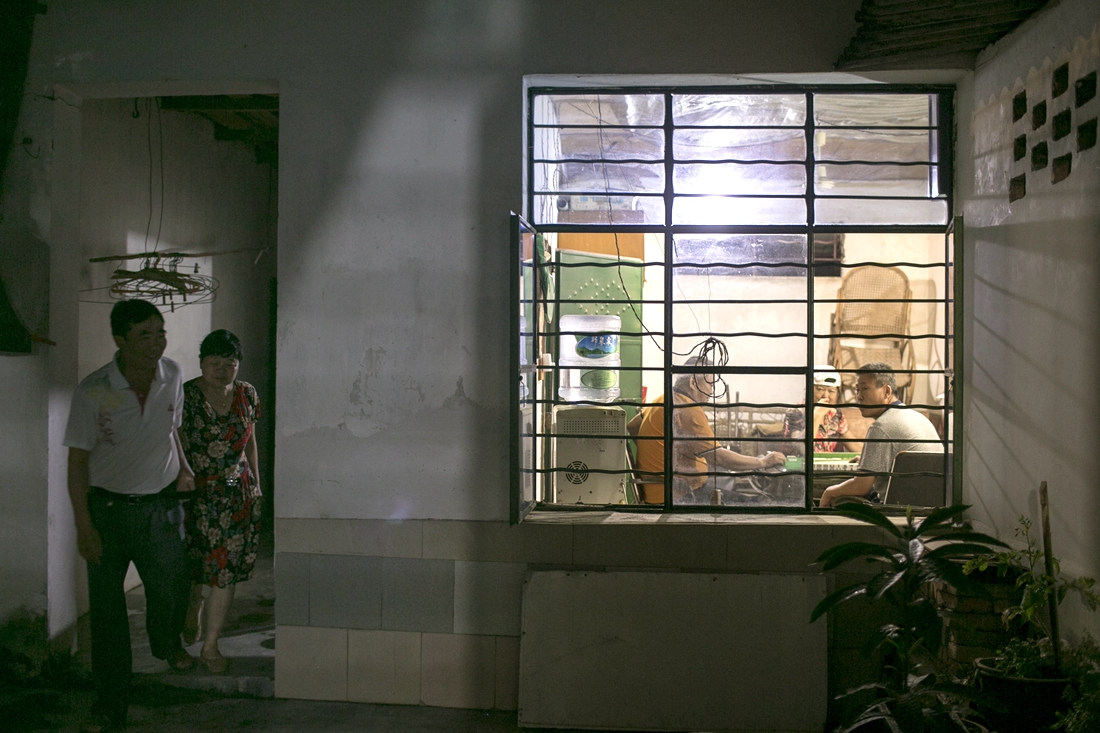 Bai fell in love with his wife in 1974, though they didn’t tie the knot until 1982 when he decided to come back to Yunnan. Now their daughter has settled down in Kunming, the capital of Yunnan Province.
The old couple from time to time invite their family and friends around to play mahjong. Bai said his friends did not understand his decision to return to Yunnan, but he never regretted it.
Bai fell in love with his wife in 1974, though they didn’t tie the knot until 1982 when he decided to come back to Yunnan. Now their daughter has settled down in Kunming, the capital of Yunnan Province.
The old couple from time to time invite their family and friends around to play mahjong. Bai said his friends did not understand his decision to return to Yunnan, but he never regretted it.
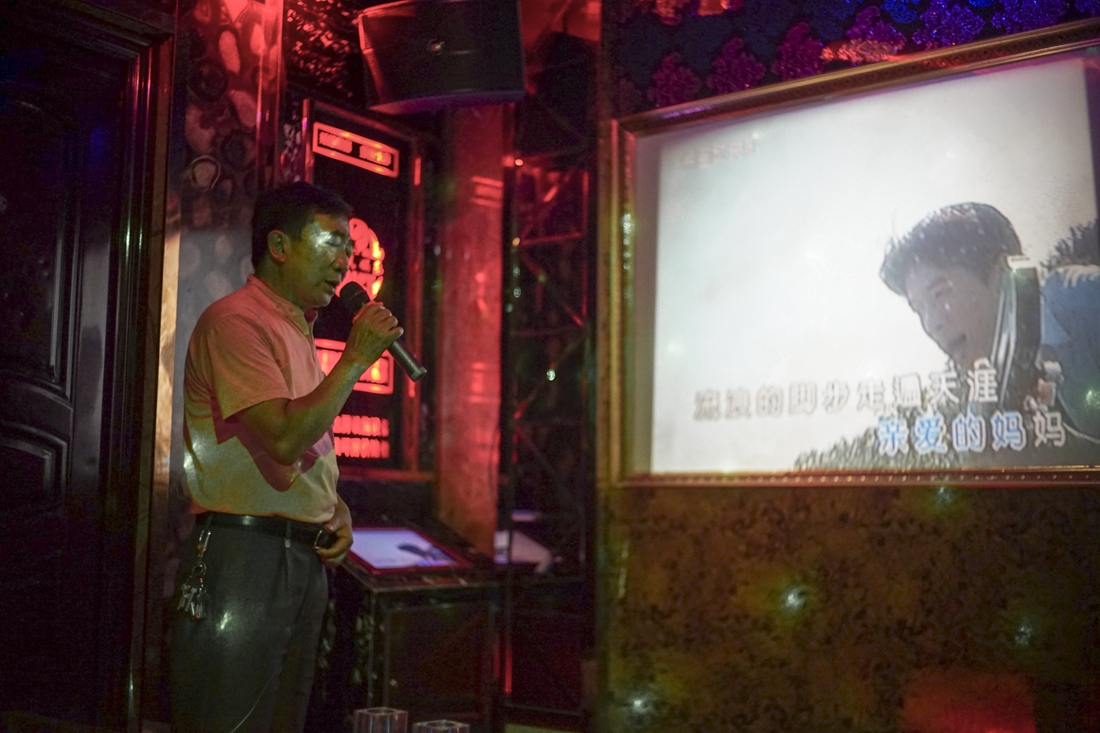 Since retiring, Bai enjoys going to karaoke with friends, though he often becomes sad singing old songs as it makes him think of the past. Though Bai is quite content with his present life, he sometimes still misses his companions who went back to Chongqing, who stuck with him through thick and thin. Whenever they gather together in Yunnan, Bai welcomes them with open arms.
Since retiring, Bai enjoys going to karaoke with friends, though he often becomes sad singing old songs as it makes him think of the past. Though Bai is quite content with his present life, he sometimes still misses his companions who went back to Chongqing, who stuck with him through thick and thin. Whenever they gather together in Yunnan, Bai welcomes them with open arms. 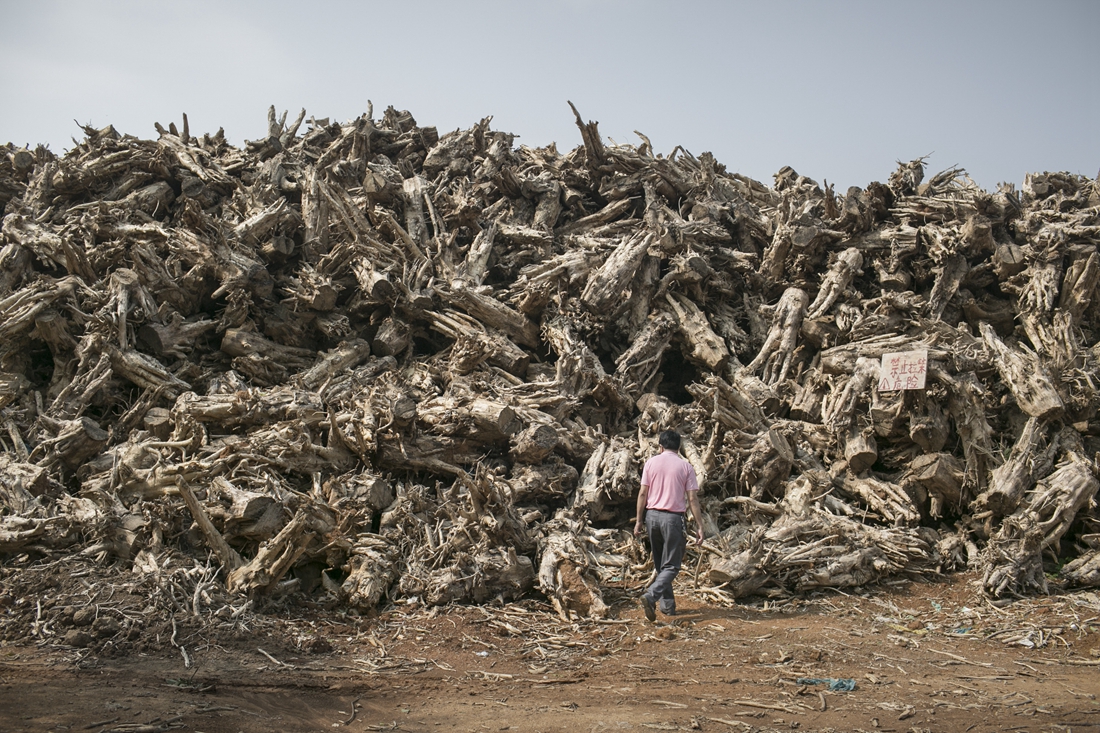 It has been 45 years since Bai first came to Yunnan. He knows that rubber trees can only be tapped for a period of 40 years, after which they will be cut down and replaced by new trees, yet he was still shaken by the sight of the uprooted trunks piled high. He stood speechless, taking it all in, before saying at last that he saw himself and his dead comrades on the withered old trees.
It has been 45 years since Bai first came to Yunnan. He knows that rubber trees can only be tapped for a period of 40 years, after which they will be cut down and replaced by new trees, yet he was still shaken by the sight of the uprooted trunks piled high. He stood speechless, taking it all in, before saying at last that he saw himself and his dead comrades on the withered old trees. 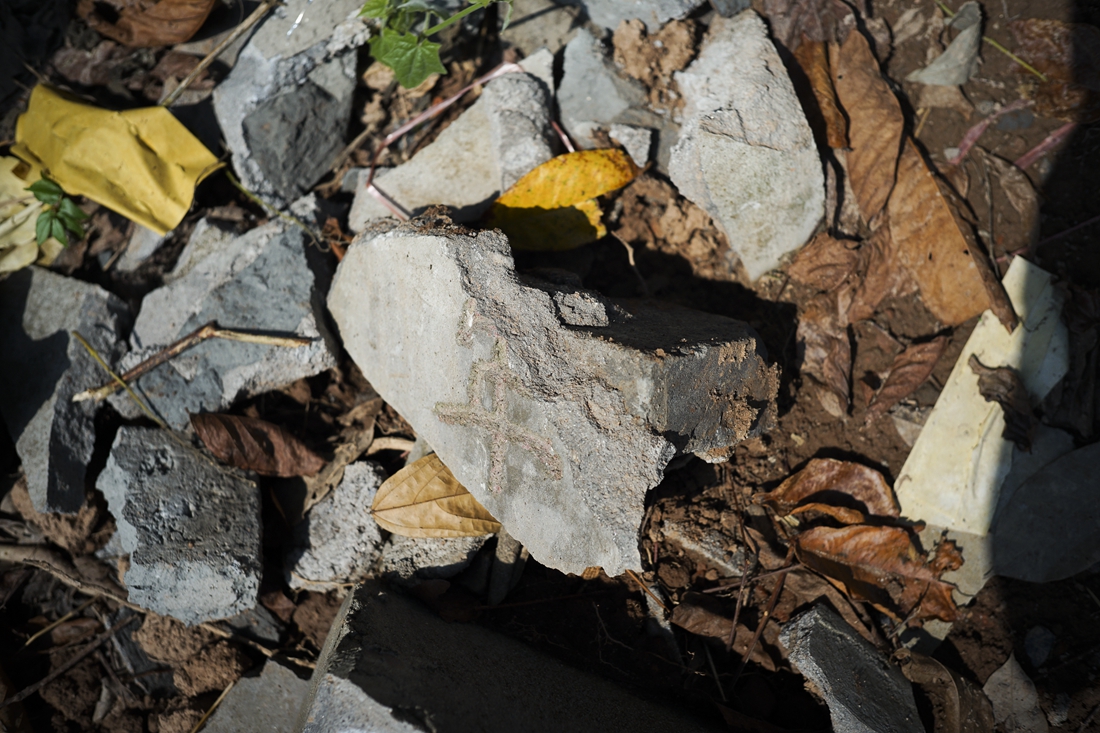 A broken tombstone lays on the floor of a rubber plantation, home to many forgotten tombs of the educated youths. According to Yan Wenzhong, when he was working at a farm hospital, a 19-year-old girl named Huang Nianxiu came in after her head was struck by a felled tree. She passed away later due to poor medical care, and her tomb fell into disrepair somewhere in the plantation. In 2016, her family finally found her grave and rebuilt one in its place.
A broken tombstone lays on the floor of a rubber plantation, home to many forgotten tombs of the educated youths. According to Yan Wenzhong, when he was working at a farm hospital, a 19-year-old girl named Huang Nianxiu came in after her head was struck by a felled tree. She passed away later due to poor medical care, and her tomb fell into disrepair somewhere in the plantation. In 2016, her family finally found her grave and rebuilt one in its place. 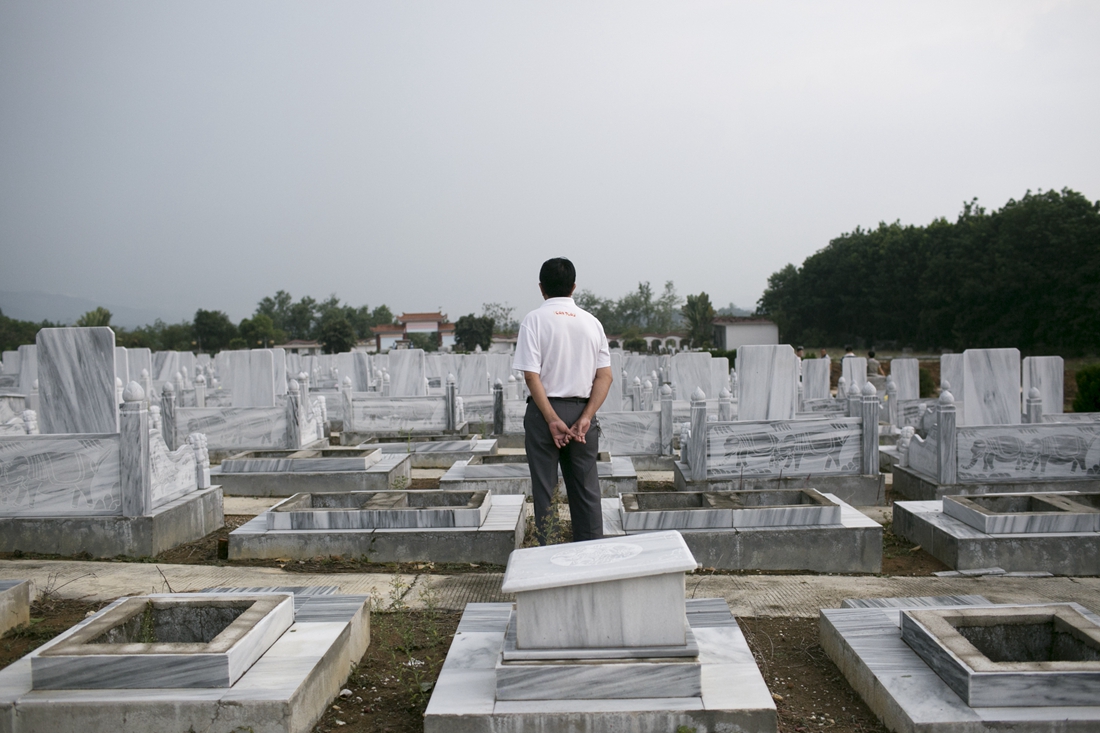 There are 75 tombstones of educated youths in the Longquan Cemetery of Dongfeng Farm, Yunnan Province, with some dying at a young age due to accidents or illness. Since their families live far from Yunnan, every Tomb-Sweeping Day Bai Hongfu visits these graves with joss sticks and offerings. He hopes that the farm will also afford him a tomb after his death, allowing him to be buried there forever with his fallen comrades.
There are 75 tombstones of educated youths in the Longquan Cemetery of Dongfeng Farm, Yunnan Province, with some dying at a young age due to accidents or illness. Since their families live far from Yunnan, every Tomb-Sweeping Day Bai Hongfu visits these graves with joss sticks and offerings. He hopes that the farm will also afford him a tomb after his death, allowing him to be buried there forever with his fallen comrades.
















































